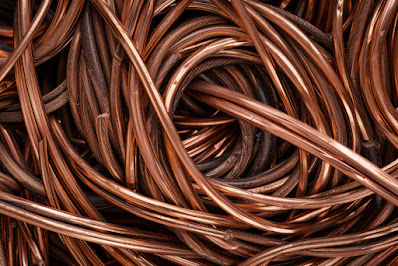Unveiling the Veracity: Is It Safe to Bury a Bare Copper Ground Wire?

Earth wires are of utmost importance in electrical systems as they serve as a secure conduit for the dissipation of surplus electrical current into the earth. Ground wires serve the purpose of safeguarding individuals and assets against the hazards associated with electrical malfunctions and lightning strikes. The absence of a properly operational ground wire poses an elevated vulnerability to electrical shocks, fires, and equipment impairment within electrical systems.
An often-asked concern regarding ground wires is whether it is safe to bury a bare copper ground wire. This inquiry holds particular significance in scenarios where the burial of the ground wire may offer greater practicality or visual appeal. This article aims to examine the potential hazards and advantages associated with the burial of bare copper ground wire while also addressing the pertinent building codes and regulations that necessitate careful consideration.
The advantages and disadvantages associated with the burial of a bare copper ground wire
The act of concealing bare copper ground wire has a distinct array of potential hazards and advantages that necessitate meticulous assessment. One of the primary advantages associated with the burial of a ground wire is the safeguarding it offers from potential physical harm. Exposure to ground wire renders it vulnerable to inadvertent harm originating from diverse origins, including construction operations, landscaping practices, or interference from animals. The mitigation of these dangers can be achieved through the burial of the ground wire, guaranteeing the uninterrupted safety of the electrical system.
Nevertheless, there are potential hazards linked to the act of burying an exposed copper ground line. One of the primary considerations concerns the possibility of corrosion. Copper is renowned for its exceptional electrical conductivity and notable resistance to corrosion. However, it is important to note that, under specific soil conditions, copper can undergo degradation over a period of time. Various factors, such as soil moisture, pH levels, and the presence of specific compounds, can influence the corrosion of copper. Hence, it is imperative to take into account the soil conditions and implement suitable strategies, such as the application of protective coatings or the selection of alternative materials, in order to minimize the potential for corrosion.
Another factor to take into account is the ease of access for maintenance and repairs. Burying a ground wire increases the difficulty of locating and accessing it for troubleshooting or making modifications. This can result in heightened duration and expenses linked to any essential repairs or enhancements. Hence, it is necessary to meticulously strategize the installation of a ground wire, guaranteeing the preservation of accessibility or the implementation of alternative procedures to assist subsequent maintenance requirements.
The construction norms and regulations pertaining to the burial of ground wires.
In order to make an informed decision on the burial of bare copper ground wire, it is imperative to get a comprehensive understanding of the pertinent building standards and regulations. Building codes differ among countries and may outline specific criteria for the placement and interment of ground cables. The purpose of these codes is to guarantee the security and operational efficiency of electrical systems while also safeguarding against potential risks.
Building codes may permit the burial of bare copper ground cable under specific circumstances. For instance, it may be necessary to specify the depth of burial or employ supplementary protective measures, such as conduit or grounding electrodes. To ensure adherence to the unique requirements in your area, it is crucial to get guidance from local authorities or electrical experts.
Furthermore, it is important to acknowledge that building regulations undergo regular revisions in order to include technological improvements and enhance safety protocols. Hence, it is imperative to remain well-informed on any modifications or adjustments that could potentially impact the installation of ground wires. Consistently examining and following the most recent construction rules and regulations will guarantee the safety and compliance of your electrical system.
Conclusion: Evaluate the advantages and disadvantages prior to burying an exposed copper ground wire.
Ultimately, a thorough evaluation of the potential hazards and advantages associated with burying an exposed copper ground wire is necessary. Although burying the ground wire can offer physical safeguarding and improve the visual appeal of an electrical system, it is crucial to minimize the potential for corrosion and guarantee ease of access for maintenance. It is imperative to have a comprehensive understanding of and adhere to the precise construction standards and regulations in your locality to guarantee compliance and safety.
If you choose to proceed with the burial of bare copper ground wire, it is recommended to seek advice from electrical experts who can offer assistance tailored to your particular situation and the applicable local rules. They may assist in determining the optimal burial depth, suggest precautionary measures, and check that the installation complies with all safety regulations.
Ganpati Engineering is a prominent maker of copper wire in India. We provide a range of items, including unadorned copper wire, copper wire with braids, tinsel wire, tinned wire, and other options. Our extensive knowledge and superior products enable us to ensure the safety and dependability of electrical systems. Get in touch with us now for all your copper wire needs.


Comments
Post a Comment